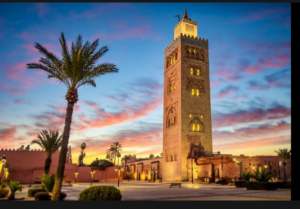Foreign Office Travel Advice Morocco
Exploring the maze-like passageways of ancient medinas and walking through beautiful desert vistas are just a few of the exciting activities that await you on your trip to Morocco. However, like with any travel destination, staying up to date on the newest guidelines and recommendations is critical to ensuring a safe and happy journey. In this detailed guide, we’ll look at the Foreign Office’s travel advice for Morocco, providing insights and recommendations to help you navigate this interesting North African country with confidence.
Understanding Foreign Office Travel Advice
The Foreign, Commonwealth & Development Office (FCDO) provides up-to-date travel advice for British nationals planning trips abroad. This guidance encompasses various aspects of travel, including safety and security, entry requirements, health considerations, and local laws and customs. By consulting the FCDO’s advice for Morocco, travelers can make informed decisions and take appropriate precautions to mitigate potential risks.
Safety and Security
Morocco is generally a safe tourist destination, with a well-established tourism industry and a strong reputation for hospitality. However, like with any trip destination, you must remain attentive and aware of your surroundings, especially in crowded places and tourist hubs. The FCDO encourages travellers to exercise caution in specific locations, including as the Western Sahara and areas near the Algerian border, due to occasional security issues.
Entry Requirements
Before traveling to Morocco, it’s crucial to ensure that you have the necessary documentation and meet the entry requirements. British nationals visiting Morocco for tourism purposes do not typically require a visa for stays of up to 90 days. However, passport holders should ensure that their passports are valid for the duration of their stay. Additionally, travelers may be asked to complete a landing card upon arrival and provide proof of onward travel.
Health Considerations
As with travel to any destination, it’s essential to be aware of any health risks and take appropriate precautions before visiting Morocco. The FCDO recommends that travelers consult a healthcare professional at least 4 to 6 weeks before their trip to receive up-to-date advice on vaccinations and health precautions. While Morocco does not pose any significant health risks for most travelers, it’s advisable to take precautions against common travel-related illnesses, such as traveler’s diarrhea and sun exposure.
Local Laws and Customs
Respecting local laws, customs, and traditions is essential when visiting Morocco. The country has a rich cultural past and Islamic customs, which should be followed out of courtesy and respect for the locals. For example, tourists should dress modestly, especially in religious and conservative places, and avoid public shows of affection. Furthermore, alcohol use is permitted, but it is often limited to licenced establishments such as hotels and restaurants.
By remaining up to date on the latest Foreign Office travel advice for Morocco, visitors may explore this fascinating country with confidence and peace of mind.
Whether you’re drawn to the bustling souks of Marrakech, the quiet beach towns of Essaouira, or the rugged splendour of the Atlas Mountains, Morocco has a wealth of experiences waiting to be discovered. By following the FCDO’s advice and taking reasonable precautions, you can start on an unforgettable voyage packed with adventure, cultural immersion, and warm hospitality.
Before embarking on your Moroccan vacation, make sure to read the FCDO’s newest travel advise and consider getting comprehensive travel insurance to cover any unexpected scenarios. With careful planning and an attitude of openness and curiosity, your trip to Morocco will be an extraordinary experience full of discoveries, connections, and amazement. Safe travels!
